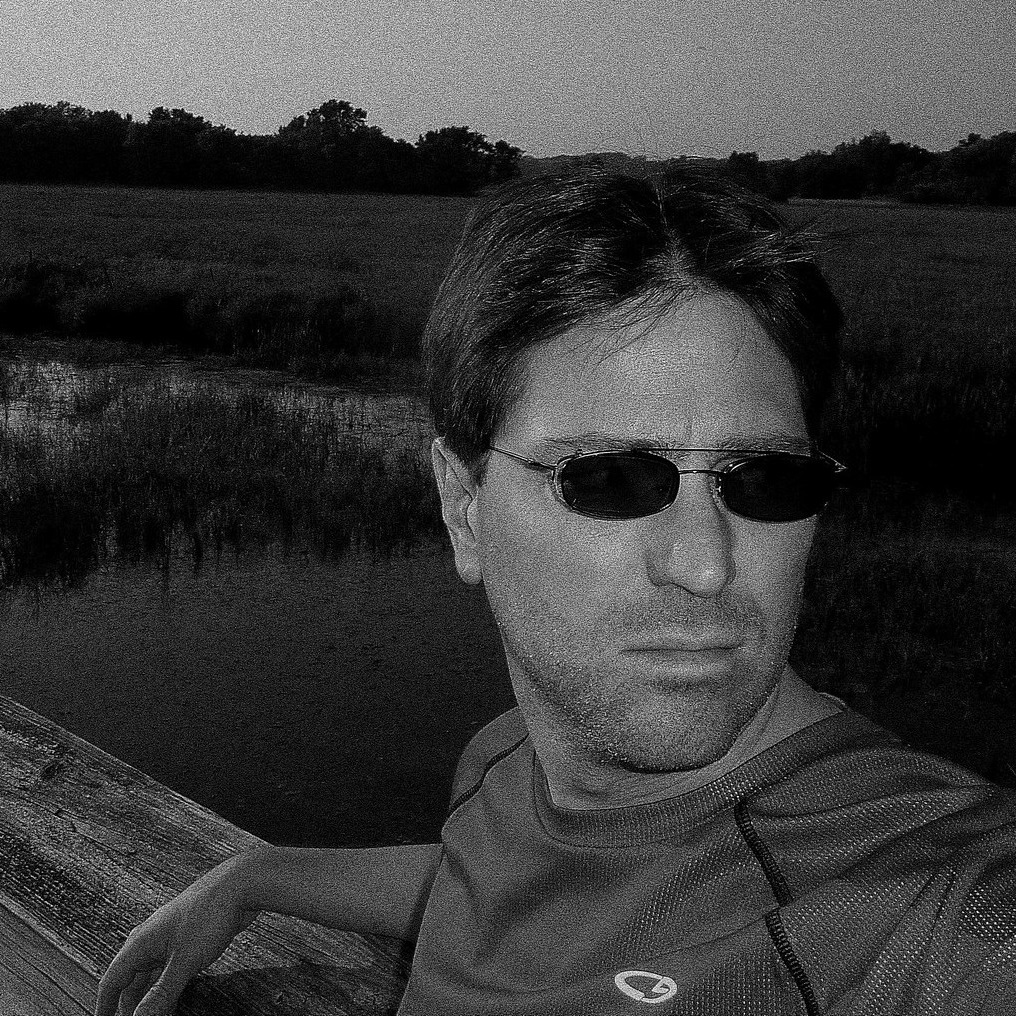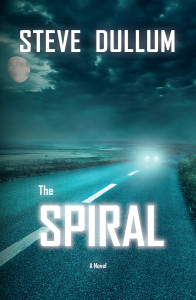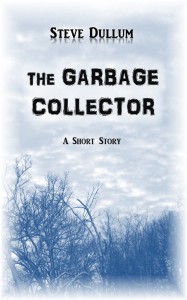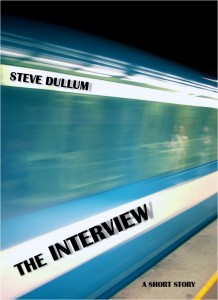Interview – Steve Dullum, author of The Spiral
Self-Publisher’s Showcase: Today we are joined by Steve Dullum, author of suspense novel The Spiral. Welcome to the Showcase Lounge, Steve.
Steve Dullum: Thanks for having me, it’s a real honor.
SPS: For any of our readers that haven’t come across your work previously, can you take a moment to tell us all a little about yourself?
SD: I’ve lived in Wisconsin my entire life, and I currently live in the capital city of Madison. I’ve worked in the IT field for over fifteen years, but my real passion is writing. I’m an avid reader. I need to read a little bit every day, if possible. It’s good for the soul, and it’s a great way to learn. I also enjoy taking my motorcycle out for a ride in the country. I noodle a lot on the guitar and usually sing in the car (a secret I don’t share with many). Music is an important part of my life and has been since I was a kid. Life is a mystery to me. Some days I think I have it all figured out, and other days it seems so strange that I’m actually here, alive in that singular moment, with a lifetime of memories already behind me. The older I get, the more I’m aware of just how quickly life passes and how little time all of us have. If there is something you want to do, you have to do it now. It’s easy to think there will always be plenty of time, but there just isn’t.
SPS: What are your perfect writing conditions, and how often do you write?
SD: It has to be quiet. Some people need background noise, music, or whatever, but I can’t focus unless I have silence. A dark room helps minimize distraction, which is why I mostly write at night. When I was working on my first novel, a good week was two to four nights of productive writing. I have just started my second novel, so I’m hoping I can get into that same rhythm again. I wish I could be more prolific, but it’s a slow process for me.
SPS: Can you put your finger on the moment where you decided that you wanted to publish your work?
SD: Initially my goal was just to see if I had what it takes to write a novel, and it was nothing more than a fun challenge for myself. Around the mid-point of the first draft, however, I started taking my writing more seriously and wanted to get better at it. I read books on how to write, and one in particular, “Self-Editing For Fictions Writers,” really helped me take what I was putting down on paper to the next level. It was around that time that I began dreaming of being a published author.
SPS: Why do you think it is that you have found yourself writing in the style/genres that you do?
SD: That was a no-brainer for me because I’ve been reading suspense and horror since I picked up my first Dean Koontz novel back in 1988. I admire and do read many other authors and genres as well, but Koontz really turned me on to reading as an adult. He has his faults, sure, but he’s so good at creating suspense that has emotional impact, and that’s what I enjoy. Without question, Koontz has had the biggest influence on my writing style.
SPS: What, if anything, do you feel differentiates your work from others?
SD: That’s a tough question, especially since I’ve only written one novel. I like to think I have a knack for creating characters that people can relate to, who are real and have a true humanity to them. At least that’s what I aspire to do. If the characters are cardboard and only serve to advance the plot, you just won’t care about them. Whether I’ve discovered my own voice yet remains to be seen. I’m hoping it reveals itself fully with my next novel.
SPS: Can you take a moment to tell us all about The Spiral?
SD: I tried to write the type of story I enjoy reading: eerie, suspenseful, and atmospheric. I also really love Alfred Hitchcock. He frequently used the theme of the everyman caught up in extraordinary circumstances, and that is what I went for with the main character of Alan and the obstacles he has to overcome. Here is a snippet from the cover blurb: “The coastal town of Bonduel is the perfect setting for Alan Geffen to finally conquer his anxiety disorder and begin a new life. But when he discovers evidence linking a prestigious biotech company to a brutal hit-and-run accident, his quiet life becomes a nightmare.”
SPS: Your protagonist Alan has an anxiety disorder. Is this something that took a lot of research, or were you already familiar enough with the disorder to write the character?
SD: I did do a little research into how this particular form of social phobia can affect the sufferer’s perceptions of the people around them, and how it can distort the intentions of others and the significance of events. Alan is recovering from a severe anxiety disorder, and it does play a role in some of the decisions he makes, or doesn’t make, but I didn’t want it to define him. What I wanted it to do is create some doubt in the mind of the reader. Is Alan’s paranoia simply the result of his anxiety disorder coming to the surface again, or is what he fears the most really happening?
SPS: How does he react when events take a real turn for the worse?
SD: There is a lot of internal struggle going on in Alan’s mind. As his life starts to unravel, he wonders if the anxiety is to blame, and he tries to find logical explanations. But as the evidence mounts and convinces him that something truly sinister is happening in the town of Bonduel, Alan learns to trust his gut instincts and ignore his inner self-doubt. From then on he knows what it is he has to do, and he confronts his fears and takes action. He discovers an inner strength he didn’t know he had. In a way, that is what The Spiral is really about. The power and resiliency of the human spirit.
SPS: It comes across as a story that’s going to be pretty fast paced. Was that always the intention?
SD: It was not a conscious decision, but that’s the way it unfolded. I knew from the first chapter that the novel would take place over the course of one weekend, so it had to move along at a brisk pace. I like to create chapters that end with a cliff-hanger, or at least something compelling enough to make the reader want to keep reading to find out what happens next. Those are my favorite types of books.
SPS: Where did your inspiration for the biotech company and the town itself come from?
SD: When I started writing, I was working for a large biotech company. I kept wondering if everyone knew what everyone else was working on, and that gave me the idea for the secret research and experimentation that a handful of people at the fictitious Immutron are conducting. As far as the town, I’ve always been intrigued by small coastal towns. They are such great settings for creepy stories.
SPS: The blurb certainly gives a feel of a Koontz-styled story. Have any other comparisons been made by readers?
SD: I have no doubt the Koontz influence is there in both the style and the characters. I didn’t try to emulate Koontz, but having read so much of him, the way he handles pacing, dialog, and character development certainly rubbed off on me. One reader told me that a particular scene involving a cop and a corpse reminded her of a scene in Stephen King’s The Stand.
SPS: Can you tell our readers all about your short story The Garbage Collector?
SD: I like to think of it as a ghost story with a twist. I’m very proud of how it turned out. The twists and turns surprised even me. It was the first short story I ever wrote, so I really didn’t know what I was doing, and I think that helped give a fresh voice to the narrative. It starts out light-hearted and quickly becomes an emotionally powerful story. At its core, it is about surviving a tragic event in life and then later having the chance to change the outcome.
SPS: Warnings from the future. Is there a touch of the paranormal involved in your story?
SD: Yes, definitely. It’s essentially a ghost story, but not of the haunted house variety. It’s more about the spirit world, and the possibility of crossing over into our world and communicating with the living.
SPS: What does Dan need to make right?
SD: If I answered that, I might give away the ending. I’ll just say that young Danny receives a message from the future, and the choices that he makes as an adult will forever haunt him.
SPS: Did you find any complications with writing in a shorter form?
SD: Not really. I didn’t know how long it was going to be, so I just wrote until it was finished. I didn’t approach it any differently than if I’d been writing a novel. The story fit nicely into the short format, so that’s what it became.
SPS: Before we move on you also have another short story available. Can you tell us briefly about The Interview?
SD: My second short story, and again I really didn’t know what it was going to be about. It started with the simple idea of an interview gone horribly wrong, and I let it unfold from there. I’ve been through lots of interviews in my IT career, so I had plenty of material to draw upon. The interview is a flat out roller coaster of a thriller. A regular guy finds himself in a precarious situation with an impossible decision to make. Whether or not he makes the right decision is for the reader to decide.
SPS: What kind of responses have you received thus far from people who have read your work?
SD: Overwhelmingly positive, which has been very humbling for me. I’ve also had some good constructive criticism so that has been welcome and helpful. As a first time author, you spend countless hours writing and editing and polishing, all the while wondering if your work is any good and if you have any talent. So to have people enjoy what I’ve written is a thrill to say the least. It’s inspired me to want to become an even better writer, because I know that I still have a lot to learn and improve on.
SPS: What’s next on the self-publishing horizon for Steve Dullum?
SD: Well, when you go the self-published route, marketing is very important, and I think the best marketing strategy for me at this point is to write another book and get it out there. That’s the best way to build a platform and start achieving some name recognition. I totally understand the reluctance of readers to spend money on an author with only one book published, as I’m probably the same way. I’ve started on my next novel, and I hope to release a few short stories while I’m working on it.
SPS: Was the Self-Published/Indie-Published route always your preferred route for your work?
SD: I initially had the same dream as most writers, I suppose, and that is to have your book published by a traditional publisher. I wanted to see my book in a bookstore. I spent a lot of time and effort and experienced my share of disappointment and frustration trying to go that route. The publishing industry has changed so much over the past ten years or so that I think self-publishing might now be a better path for unknown authors. There are disadvantages, sure, but unless you have a guaranteed bestseller to offer the traditional publishers, self-publishing might be the best route to getting your work out there and finding an audience.
SPS: Has the experience so far been all that you thought it would be?
SD: Yes, I’d say so. I did enough research to know that it is tough going it alone. When I self-published with BookBaby (eBook) and CreateSpace (printed book) I had realistic expectations. I know I haven’t done enough marketing/promotion, but the learning curve for that aspect of self-publishing is steep, and I’m still learning and trying different things. But it’s easy to get so caught up in doing that (Blogging, Twitter, Facebook, etc.) and forget that writing is the most important thing.
SPS: If you could give one piece of advice for someone looking to get into writing, what would it be?
SD: That is an excellent question and a tough one to answer. There is so much advice already out there in books and on the Web that it’s easy to drown in it and lose your own style and voice in the process of learning how to write. You can learn a lot from doing that type of research, but most importantly, you have to read. A lot. Stephen King made the comment that you can’t be a writer if you don’t read, and I agree with him. I learned a lot about character development and pacing and dialog just by reading great authors. If you pay attention to what you’re reading, that will ultimately teach you more than any “how to” book. That said, one book that helped me a great deal was “Self-Editing for Fiction Writers,” by Browne and King. It was very eye-opening and provided lots of “ah ha!” moments. Anyone learning to write should read it.
SPS: Before we bring this interview to a close, it’s your chance to name-drop. Anyone who you feel is deserving of more recognition at present or someone whose writing you have recently enjoyed? Now is your chance to spread the word…
SD: There are so many great writers out there, many without the recognition and success they deserve. I just read “Elixir,” by Gary Braver, and it was one of the best books I’ve ever read. I highly recommend him. Robert McGammon is an author who isn’t as well-known as he should be. His “Boy’s Life” is another one of my favorites.
SPS: Thank you for joining us today Steve, and all the best for the future.
SD: Thanks so much, it’s been a real pleasure.
SPS: For more information on Steve and his work, please do visit his Showcase Author page here.

















Leave a Reply